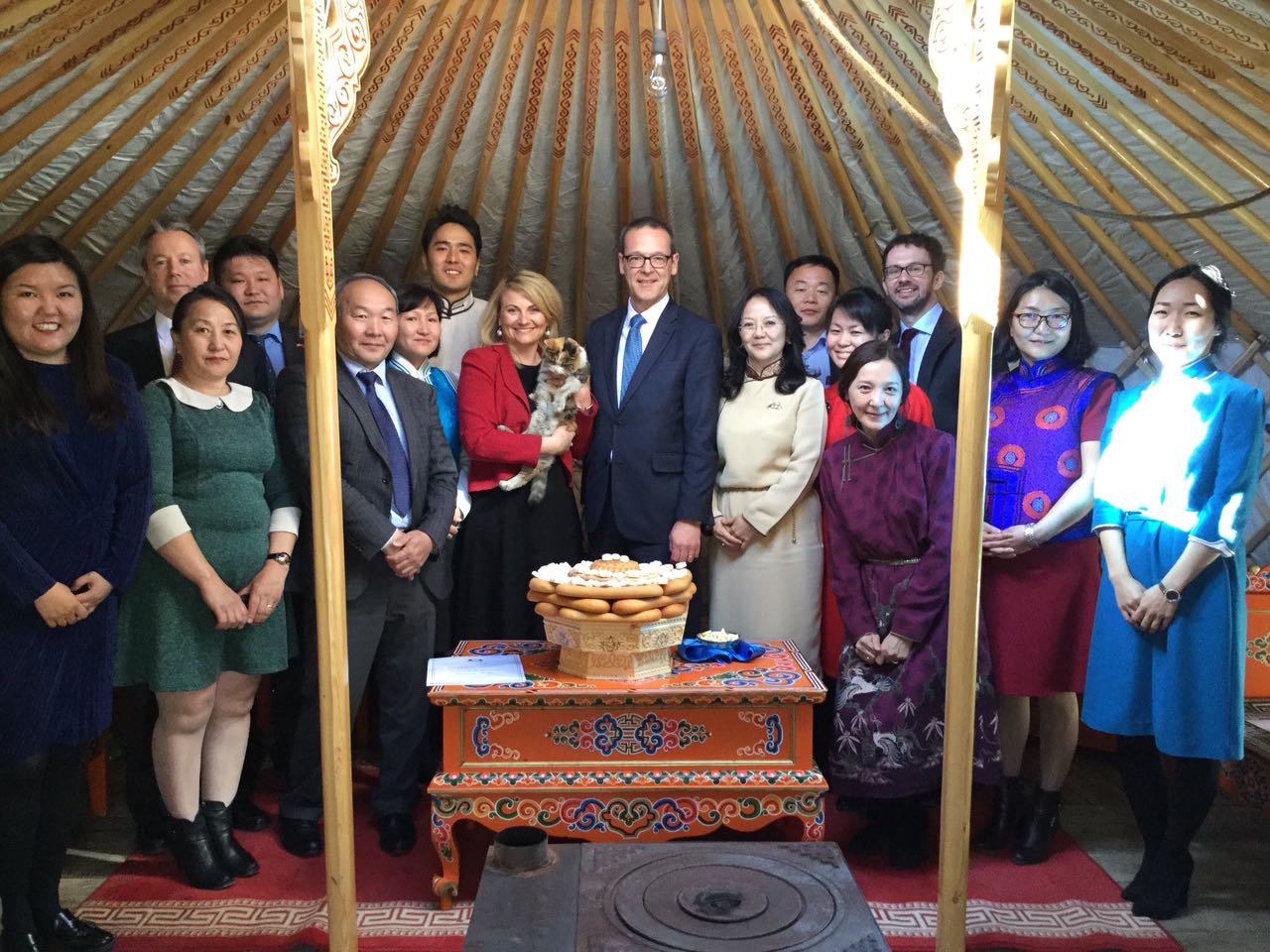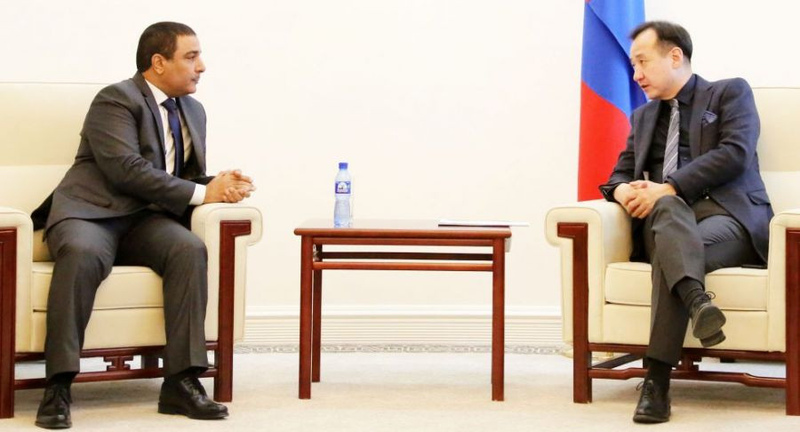The woman on the hotline wouldn’t let her go. Between planning on leaving and actually leaving, there are mine fields of abusive histories and excuses that the psychologist gently walks her through, mapping small steps to safe havens, and somehow getting the kids across unscathed.
The shelter is quiet, the only battle is raging in fiber-space, and stories burn phone lines in the women’s homes. She glances up. Her monitor shows 206 more calls that the police referred to the domestic violence hotline. The calls are only from the capital, Ulaanbaatar. And it was not even noon yet.
An ADB team of specialists interviewed psychologists and police officers operating the domestic violence hotline 107 and also facilitated focus group discussions (FGDs) among women in select aimags (provinces). ADB has joined the #OrangeTheWorld campaign run by UN Women to end violence against women. The color orange is used to symbolize a brighter future without violence for women and girls.
The italicized sentences below are drawn from actual situations described by psychologists in calls to the hotline, as related to the ADB team.
Her fingers traced the trail her mind had mapped for days now. 1-0-7. Hung up. 1-0-7. Stay on the line.
Calling 107 is the first step toward healing, but it can be a difficult step to take. Callers breaking the silence about gender-based violence in Mongolia have navigated a perilous trail to get to this point. It is estimated that more than half (57.9%) of women with current or former intimate partners have experienced domestic violence, according to a 2017
study by the National Statistics Office of Mongolia and the UN Population Fund.
Most survivor women are between 25 to 49 years old, at their economic peak and leaving ground-zeros in every work hour lost, in every togrog (Mongolian currency) of hospital stay from the sexual, physical, economic, and emotional assaults by people who said they love them.
There is that beautiful buzz about education: “When you educate a man, you educate a man. You educate a woman, you educate a generation.” And so it is for wounding a woman. Though the pain diminishes over time and aggression is dismissed like minor headaches, cells memorize hurt. The study supplies the numbers – almost a third (32.4%) of women experienced violence from partners who were themselves beaten regularly as children while 22.2% had mothers who were also survivors.
Please stay on the line. She already spent 20 minutes with the caller who vacillated between breaths, at once contradicting herself, defending the partner and then asserting: but he cannot do this to me.
In behavior change communication, the first order of business is to verify whether what is in the mind smatches not with what people say they do, but what they actually do. But minds are curious things, bent by many in-betweens—beliefs, perceptions, immediate needs, strong emotions.
When the NSO/UNFPA study asked about acceptable behaviors by partners, more than half (55.4%) of women who survived physical and sexual abuse agreed that a good wife obeys her spouse even if she disagrees. And 1 in 4 women, regardless of social and economic status, said he can beat her if she is unfaithful. Even if threatened with killing, only 10% said they would seek exits. Even if badly injured, only 19% will choose to leave.
ADB conducted FGDs and key interviews to design a behavior change communication component for a Japan Fund for Poverty Reduction-supported
project on domestic violence in Mongolia. The women intimated that while marriage and domestic partnerships are a yoking together, a woman should leave home if she cannot endure any more violence.
They knew the straight paths for asking help: police, social workers, healthcare workers. But would they leave? Survivors are paralyzed by the unanswered questions: Will they be protected? What about the children? How will they live now?
She knew where to call. She dared to call. 1-0-7. But she hung up again. What if they ask my name? What if they ask where I live?
Anxiety over stigmatizing family members and the fear that their compromised anonymity could worsen the abuse, feed the strong reticence to report domestic violence. Women have cloaked themselves with invisibility to counteract shame, but this prevented almost half (43.6%) of survivors in the study from getting help and support services. While 36% told their friends, more than a quarter of survivors did not disclose the abuse.
Mongolian law criminalizes domestic violence, requiring police to arrest the perpetrators. While this seems liberating for women, they shoulder the fines to bail out the very persons who hurt them. If their partners are breadwinners, the lost income from being detained falls on their backs. Hence the pauses in reporting to 107, the hanging up, and the urgent call for help only when the violence escalates.
An hour or two before midnight. The psychologist readies herself for this third, most critical shift, the time when more of the calls come, when women plead for rescue while barefoot in the snow with just a thin shirt and pants, and in her arms, babies and kids.
On every shift, police join the professionally trained psychologists. A multimedia campaign will soon plaster 107 on broadcast, social media and physical spaces where women converge, and they are gearing for red alert. The counselors at the 107 hotline operation center know that how they communicate the crucial first response to women in crisis can save lives.
On the next base are social workers, and legal and medical professionals to whom the psychologists and police refer and lead survivors. They, too, know and guard against behavior that will turn women away, back to invisibility.
Another crucial base is made up of community volunteers: teachers who professionally and intuitively know the signals of kids-at-risk; men who model positive, caring behavior; survivors whose storytelling will help emancipate; marriage registrars who will give tips on loving when registration is filed; women who look out for other women.
These are the people who can turn Mongolia
orange.
Source:Asian Development bank










